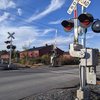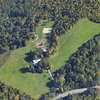Altered state
If Cuomo’s plan passes, vote will be on levy, not budget
VOORHEESVILLE The board of education here is considering a budget that would carry a 3-percent tax levy increase, 1 percent higher than would be allowed if the governor’s property tax cap were to be implemented.
Last week, the State Senate passed Governor Andrew Cuomo’s legislation that would cap the allowable increase in the tax levy, which is the amount of money the district would need to raise through taxes in order to cover its budget, at the rate of inflation or 2 percent, whichever is lower. It is unlikely that the State Assembly will pass the bill, which would take effect for the 2012-13 school budget.
In the bill passed by the senate, residents would no longer vote on a budget proposed by the school district, but rather on a tax levy proposition. “The idea is to really focus attention on the tax levy,” said Mark Hansen, spokesman for the senate Republicans.
If the increase in the tax levy is under the cap, then it would require a majority of favorable votes to pass, but if the increase is higher than the cap, it would require a 60-percent majority to pass.
When school district residents are presented with a budget, they are voting on a blueprint, Hansen said, and, between the time it is voted on in May and the time that tax bills go out several months later, the tax levy could change. Presenting voters with a tax levy proposition means that the budget will conform. As of now, he said, they “vote on a blueprint.”
If the bill becomes law, it doesn’t necessarily mean that people’s tax rates will stay below 2 percent. Sarita Winchell, Voorheesville’s assistant superintendent for business, said of the tax levy this week, “How that plays out on tax bills is a function of assessments and equalization rates.”
For example, last year the school district’s tax levy increase was 1.9 percent, but tax rates in the town of New Scotland went up 3.4 percent.
Winchell also gave a broad example, explaining that, if the tax levy were to remain the same but property assessments in one town grow, then the tax rate drops for everyone.
“It’s never over till it’s over,” Winchell said of the district’s budget development. As it stands now, Voorheesville is proposing a $21.3 million budget, which is 1.7 percent lower than last year’s budget, that would have a 3-percent tax-levy increase since the district will be bringing in less revenue from other sources than last year.
In order to get to that figure, the district is planning to cut two periods of foreign language, get rid of a part-time music teaching position, and change the delivery of health and retirement benefits, among other things.

